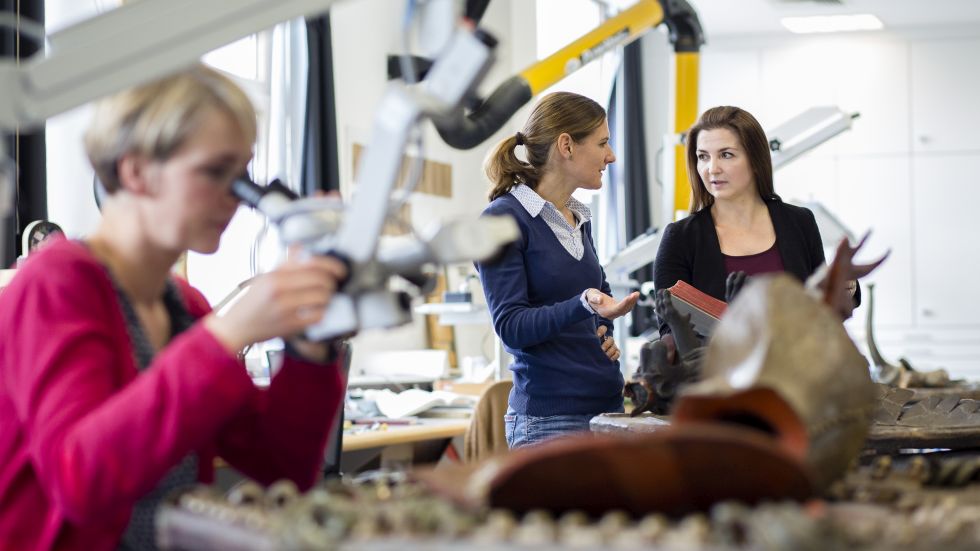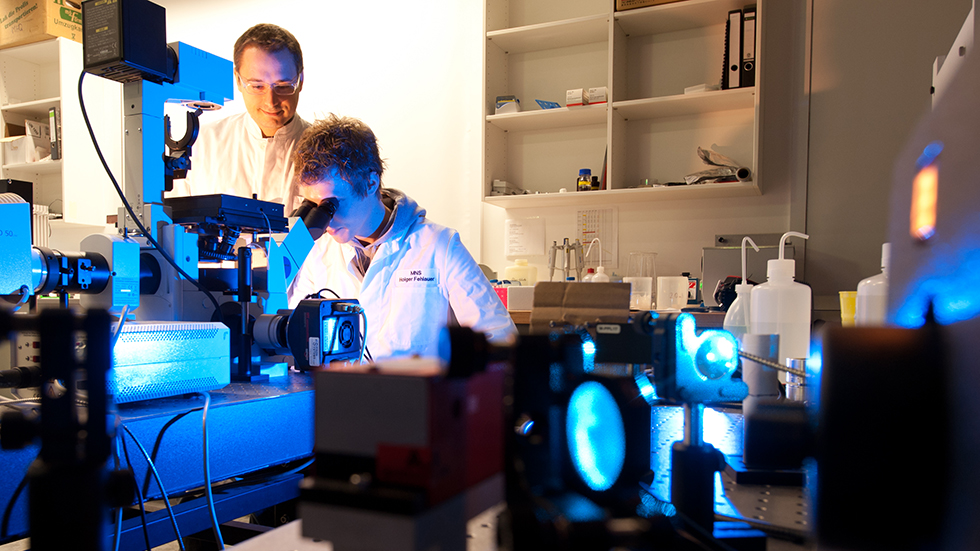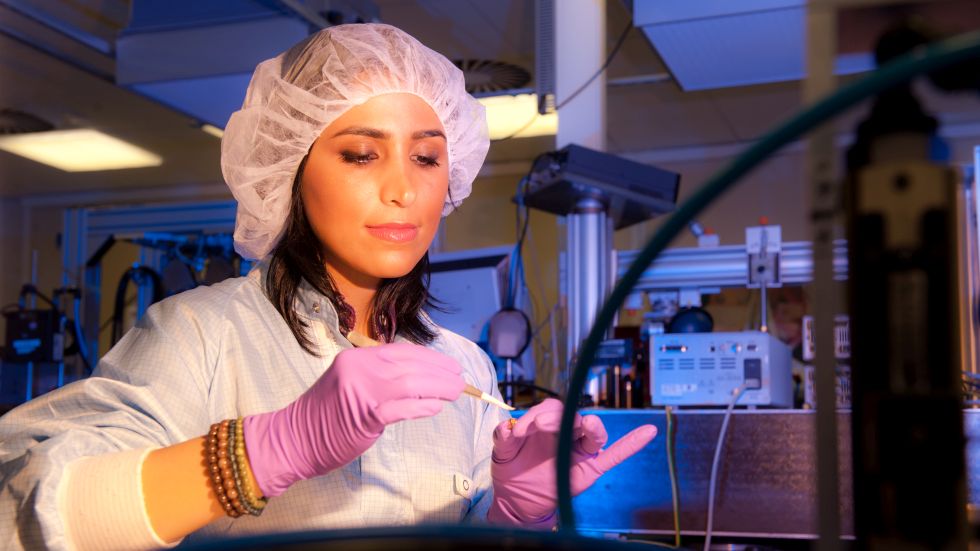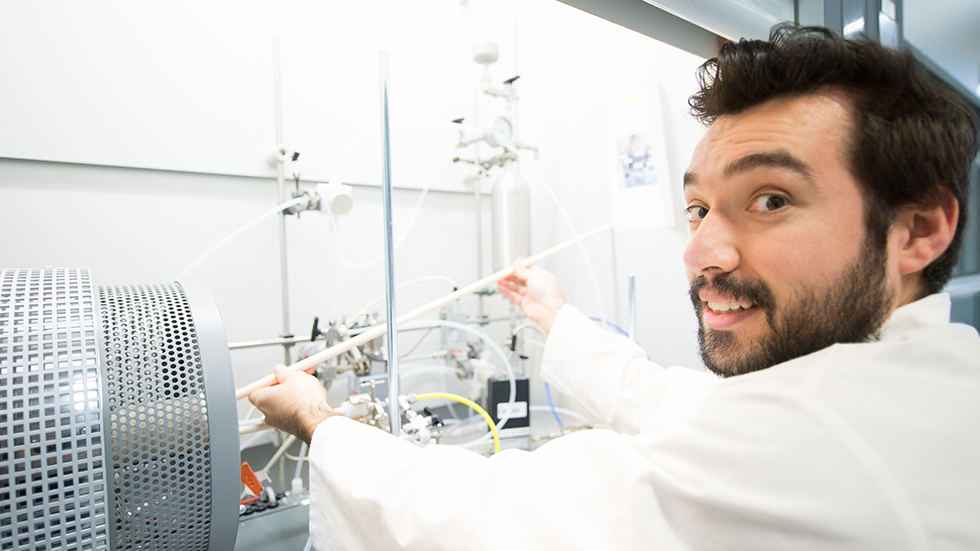Research group leader
Leadership of an independent research group enables outstanding early career researchers who have already gained research experience after completing their doctorate to realise their own research project and qualify for a professorship or another leadership position.
The large research organisations and universities – often jointly – fund the establishment of research groups with their own programmes or with support from the Deutsche Forschungsgemeinschaft (German Research Foundation, DFG) or other funding organisations. For more information about funding opportunities, please see below.

Employment
Research groups are based either at universities or at institutes of non-university research organisations. As a rule, research groups are supported for five to six years, but funding can also be extended to a maximum of nine years.
As a rule, applications can be submitted by postdocs with several years of (international) research experience after completing their doctorate.
The most important selection criterium is the outstanding subject competence of the applicant.
If you wish to realise your own research project, you must be able to convince the selection committee of its excellence. Outstanding publications in leading international journals are usually also expected.
As a research group leader you will use the infrastructure and administration of the research institute at which you are based. However, you also have access to your own funds for human resources and materials that enable you to realise an independent research project and lead a team of doctoral students and postdoctoral researchers.
If the position is based at a university and possibly even established as a junior professorship, it can also involve the supervision of doctoral students and teaching duties.
Research groups are usually very well-equipped and have generous budgets. Thus, for example, the Helmholtz Association supports its Young Investigators Groups for periods of five years with at least 1.5 million euros, while Fraunhofer Attract provides up to 2.5 million euros over five years for a group leader position with three to four new members of staff, materials and other investments. The largest funding programme for junior research groups is the Emmy Noether Programme run by the Deutsche Forschungsgemeinschaft. In 2022, more than 400 junior research groups at universities and research institutions are being funded by the DFG.
As a rule, an evaluation of the research group will take place after three to four years.
Anyone who has led a research group at a non-university research institute or a university has already demonstrated they have the ability to manage staff, to independently realise a research project and to assume budget responsibility. They can therefore perform the additional academic services that have to be proven for appointment to a university professorship.
Postdoctoral research group leaders generally have promising career prospects. Almost three quarters of all Max Planck Research Group leaders succeed in gaining promotion to a university professorship or being appointed as a Max Planck director. The leaders of Helmholtz Young Investigators Groups have favourable prospects: their positions are linked with a tenure track option.
Application and salary
How can you apply? What can you earn? Find out:
Usually there is a multistage application procedure that varies from institution to institution. Positions are advertised either by the relevant research institute itself, the university or the research organisation.
If the subject of the research group is open, then a specific project proposal has to be submitted. Frequently applications have to be written in English, and occasionally they can only be submitted online on a special application portal.
There are also differences in how the procedure continues. For example, a committee may draw up a shortlist of applicants who are then invited to a selection symposium or a personal interview. This committee then makes a recommendation – possibly after consulting external experts – that becomes the basis upon which the governing body of the research organisation or university makes a decision.
The salary of the research group leader is often part of the budget available to the research group for staff and equipment. Generally, research group leaders are paid in accordance with the collective agreement for state public employees. Depending on professional experience and grading, monthly gross income is between roughly 6,200 and 6,300 euros.
You should bear in mind that monthly deductions are taken from this total to cover taxes and possibly also social contributions for medical, unemployment and retirement pension insurance. These contributions enable you acquire rights to the excellent benefits of the German social security system.
Job search & funding
Where are research group leader vacancies for early career researchers advertised? And who provides funding for international researchers? Here you will find more information:
Funding programmes
Outstanding international postdoctoral scholars with good degrees, publications in prestigious specialist journals, relevant research experience and excellent research proposals can also receive support in the shape of fellowships and prizes.

Funding organisations
Research funding in Germany is provided by government bodies, various organisations and foundations, including many of the large non-university research institutions, and industry.

Funding databases
Search for a wide range of funding programmes for international PhD students, postdocs and established researchers.
